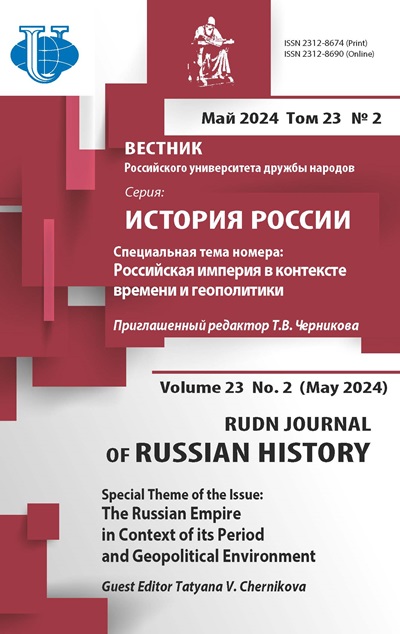Russian War Captivity of 1914-1922: Sociological Dimension (on the Urals` Materials)
- Authors: Surjikova OV1
-
Affiliations:
- Institute of History and Archaeology Ural Branch, Russian Academy of Sciences
- Issue: No 4 (2012)
- Pages: 44-56
- Section: ARTICLES
- URL: https://journals.rudn.ru/russian-history/article/view/3784
Cite item
Full text / tables, figures
Abstract
The article constitutes an attempt to consider Russian captivity of 1914–1922 from the sociological perspective. The author demonstrates that captive foreigners being at the same time group of inclusion and group of exclusion played both positive and negative part. On the one hand, they contributed to the deformation of established social borders, norms and structures, on the other hand – to their qualitative change. In a direct or indirect ways appropriating strange (moreover, hostile) environment, prisoners of war inevitably failed to become its organic part. In a large measure it was accounted for by the fact that Russian society due to acuteness of its internal contradictions denied foreign soldiers the perspective of successful socialization, depriving itself of a possibility to develop composite identities and respective differently directed social interactions which ensured the stability and success of the modern social entities.
About the authors
O V Surjikova
Institute of History and Archaeology Ural Branch, Russian Academy of Sciences
Email: snvplus@mail.ru
References
















